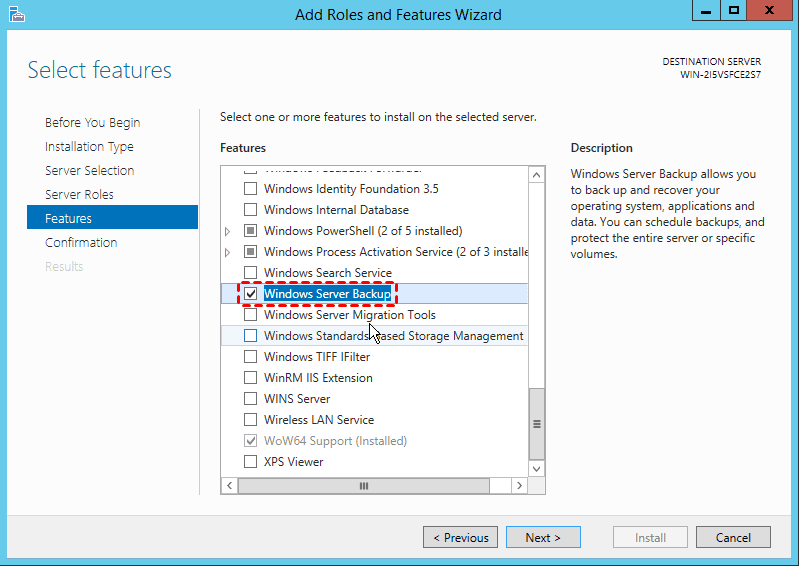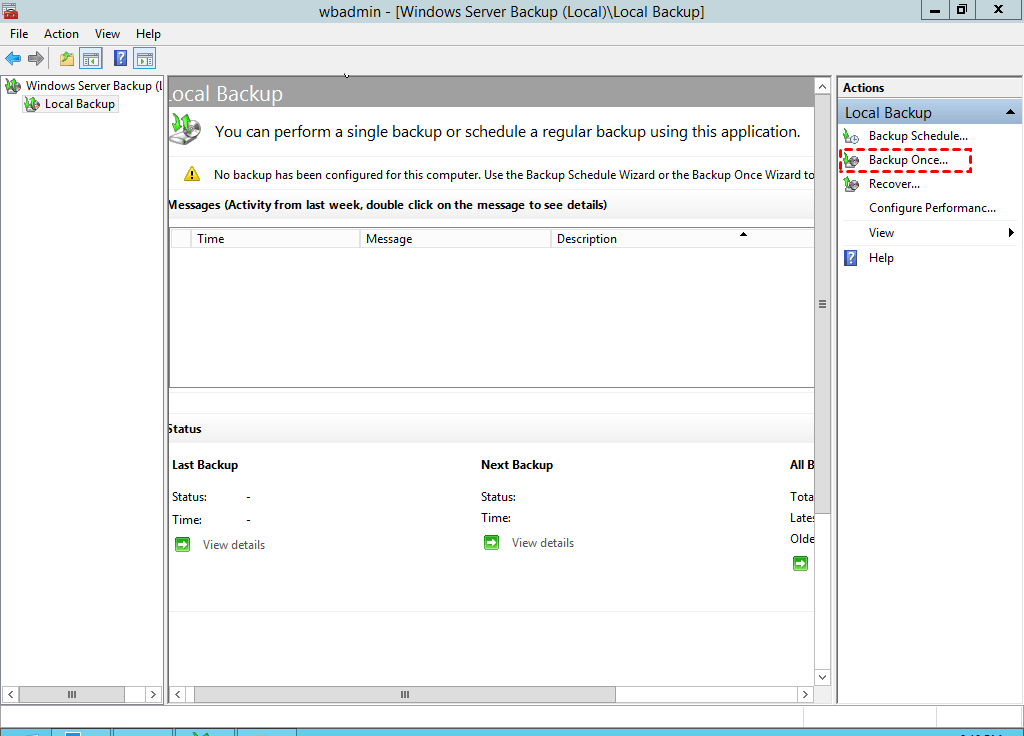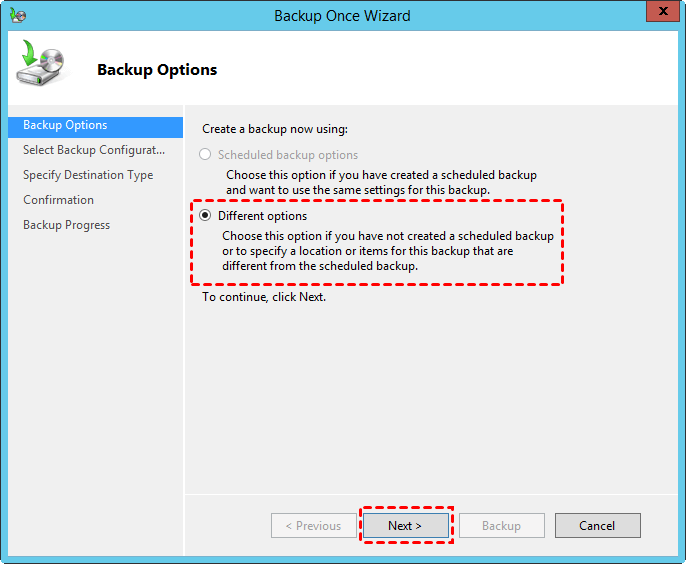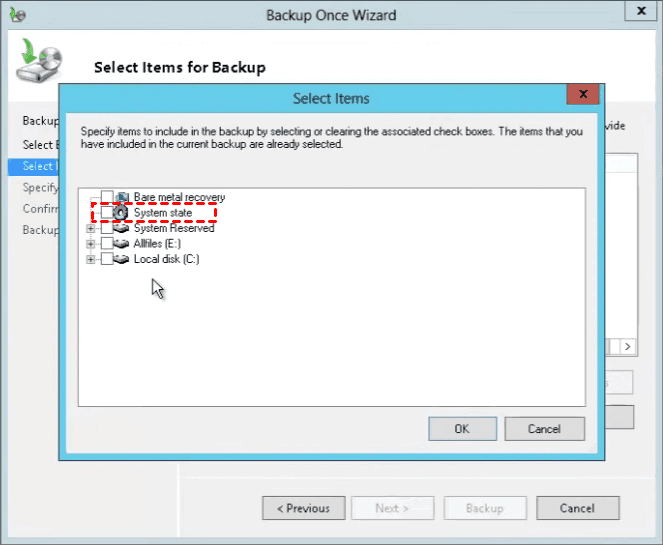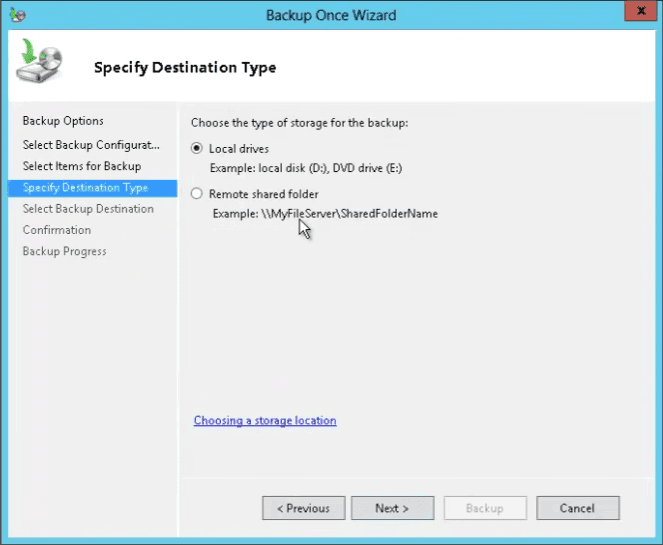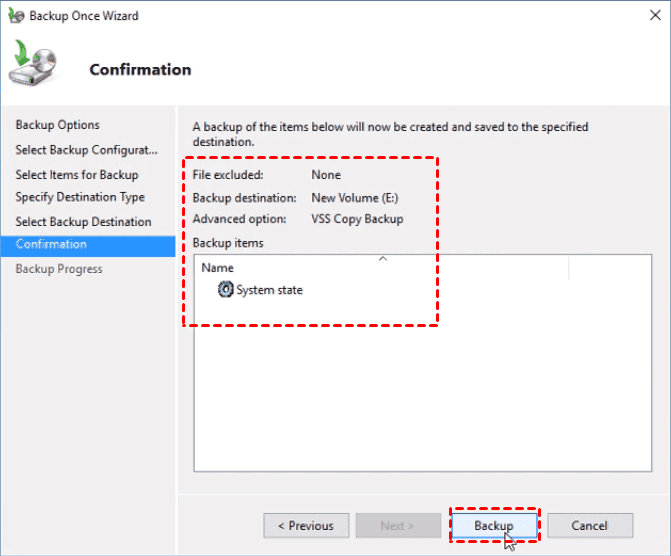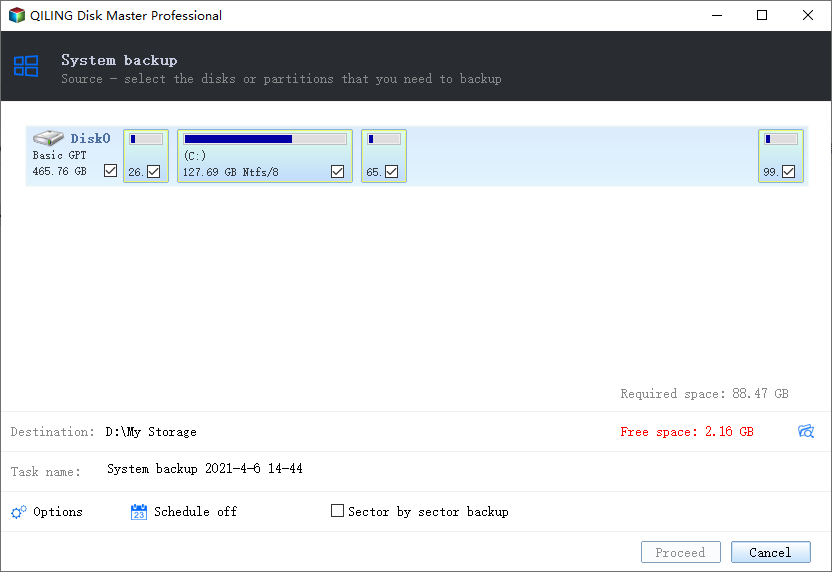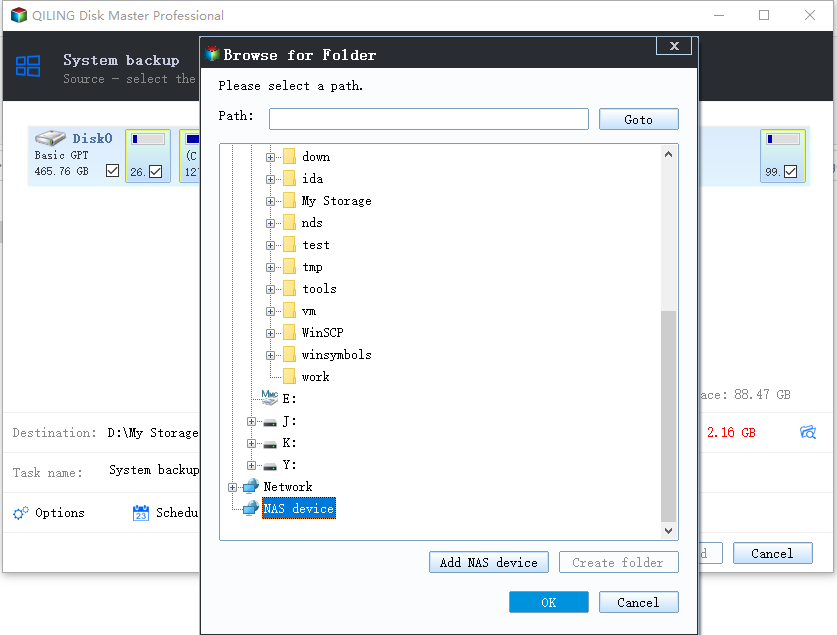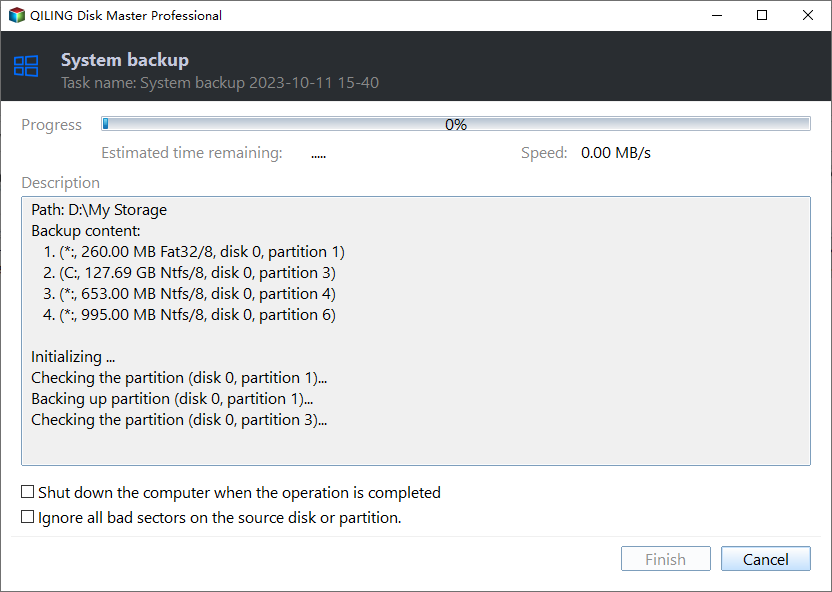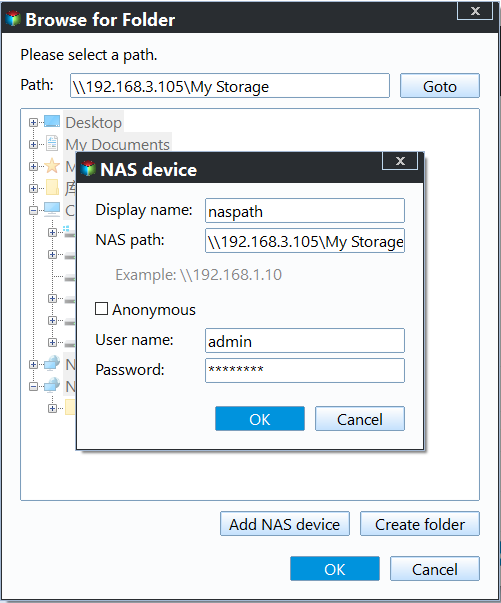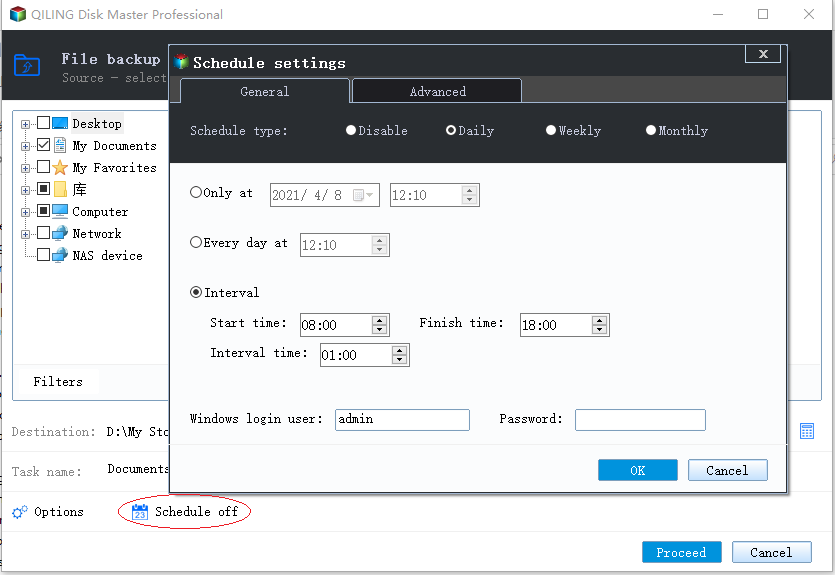How to Take System State Backup in Windows Server 2012 (R2)
- What is system state backup?
- How does system state backup and restore work?
- Take system state backup in Windows Server 2012 (R2) with inbuilt tool
- Backup Windows Server system state 2012 (R2) with Qiling Disk Master Server🔥
- Create Windows Server 2012 (R2) system state backup with Qiling Backup👍
- Conclusion
What is system state backup?
Windows Server 2012 allows you to take a system state backup, which backs up operating system files, enabling you to recover from system file and registry loss.
Specifically, the system state is composed of the following data:
● Boot files, including the system files, and all files protected by Windows File Protection (WFP), are protected from being altered or deleted. This means that any changes made to these files will be reverted to their original versions.
● Active Directory (on a domain controller only).
● Sysvol (on a domain controller only).
● Certificate Services (on certification authority only).
● Cluster database (on a cluster node only).
● The registry.
● Performances counter configuration information.
● Component Services Class registration database.
The system state data can be backed up in any order, but restoration of the system state replaces boot files first and commits the system hive of the registry as a final step.
How does system state backup and restore work?
System state backups include all system state data and cannot be customized, as individual components have dependencies among them, making it impossible to choose which ones to backup or restore.
System state data can be restored to an alternate location, excluding the Active Directory database, Certificate Services database, and Component Services Class Registration database, which are not included in the restoration. Instead, only the registry files, Sysvol directory files, and system boot files are restored. This allows for a partial recovery of system state data.
To back up all protected system files with the system state data, you can set advanced backup options which allows you to include these files in the backup. However, you cannot change which components of the system state are backed up.
Take system state backup in Windows Server 2012 (R2) with inbuilt tool
First, install the feature of Windows Server Backup on Windows Server 2012 and then follow the steps below to take system state backup.
1. To enable Windows Server Backup, open Server Manager, click on Features, and select Windows Server Backup. Then, click Start -> Administrative Tools and select Windows Server Backup.
2. To start a backup on a Windows Server, go to the Windows Server Backup page, click on "Backup Once" to create a one-time backup, or click on "Backup Schedule" to set up a recurring backup.
3. On the Backup Options page, select "Different options" and click "Next".
4. On the Select Backup Configuration page, select Custom and click Next.
5. On the Select Items for Backup page, click Add Items to select System State Backup.
6. On the Select Items page, select System state and click OK.
7. On the Select Items for Backup page, confirm the items to be included in a backup by checking the boxes next to them, then click Next to proceed.
8. On the Specify Destination Type page, select Local drives and click Next, or choose Remote shared folder to store the backup in a shared folder.
9. On the Select Backup Destination page, choose the destination drive and click Next.
10. Verify all options on the Confirmation page and click Backup to start the process.
11. When the backup is finished, click Close to exit the window.
Backing up your data may take a considerable amount of time, and it's essential to be aware of two key points:
☢ Once the backup is complete, if you want to create another backup, you must specify the destination to another location because the new backup will overwrite the previous backup on the same location.
☢ You can modify or delete the existing scheduled backup task in order to create a new one when you're ready.
Want to bypass the restrictions on system state backups in Windows Server 2012? There's a third-party tool that can make it easier for you to take system state backups.
Backup Windows Server system state 2012 (R2) with Qiling Disk Master Server🔥
Qiling Disk Master Server is a reliable backup software for Windows systems, supporting various versions from 2003 to 2022, and can also backup system state in Windows 2012 (R2) with ease.
✬ It lets you configure daily/weekly/monthly/event triggers with multiple backup schedules.
✬ To set full/incremental/differential backup for the scheduled task, you can use a backup software or utility that supports these types of backups. For example, you can use a backup software like Acronis or EaseUS to schedule a full backup, incremental backup, or differential backup.
✬ It can help you automatically delete older backup images to manage backup disk space.
Qiling Backuppper Server offers a user-friendly interface, allowing you to backup the system state of Windows Server 2012 in just a few clicks. The steps to create a system backup of Windows Server 2012 using this tool are straightforward, making it easy to use.
Step 1. Download To use the software, first install and open it. Once open, navigate to the main interface and select the option for System Backup.
Step 2. Qiling Disk Master prompts the user to name the task and select the destination path for the backup, with the system drive (C-drive) automatically chosen by default.
Step 3. Confirm the operation and then click Proceed.
Notes✍:
1. To enable encryption for the backup, click the "Options" button.
2. Click Schedule Backup to create a custom scheduled backup and we will show you the next three options.
- Event Triggers: Trigger the backup event on User logon, User logoff, System startup, System shutdown.
- Once the USB device is plugged in, it's convenient to backup data to the USB drive or backup data on the USB to another location.
3. To enable automatic backup cleanup, click on "Backup Scheme" and then select "Enable Automatic Backup Cleanup". This will allow the tool to automatically delete old image files and free up space. There are four options to choose from: by quantity, by time, by daily/weekly/monthly, and by space.
4. To restore a system backup, go to Home, locate the backup you created, and click Restore.
Create Windows Server 2012 (R2) system state backup with Qiling Backup👍
Qiling Backup is the best enterprise backup software, providing a convenient and reliable solution for centralized backup management of all Windows operating systems.
- This tool allows you to create system, disk, and partition backups for multiple Windows PCs and Servers.
- You can save backup images on a local disk, external hard drive, network share, or NAS device.
- You can schedule a backup task to run daily, weekly, or monthly using the full, incremental, or differential backup method.
- You can also use it to backup VMware, Hyper-V, and MSSQL servers.
Download this powerful enterprise backup software now and learn how to run a system state backup for Server 2012, a crucial step in ensuring business continuity and data protection for your organization.
1. Install and run Qiling Backup. Log in with Qiling Backup account or Windows account.
2. To add a Windows Server 2012 device to the backup, click on "Source Device" > "Windows" > "Add Windows Device" and enter the IP address, username, and password of the device.
3. Create Windows Server 2012 system backup.
- Click Backup and Recovery main tab page.
- Choose System Backup as the Backup Type.
- Edit Task Name based on your needs.
- In the Device Name field, click the Select + button to choose the device you just added.
- In the Target field, click the Browse icon and select either Add a new local storage or Add a new network storage to specify a destination path.
- Change the default schedule settings in the Schedule field.
- To run your first backup, click "Proceed" and then "Add the schedule and Proceed now" to schedule the backup.
Conclusion
Compared to Windows built-in tool, it's easier to backup system state of Windows 2012 with the assistance of Qiling Disk Master Server Edition, making it a suitable option for enterprise users with multiple devices that need to be backed up.
Related Articles
- How to Use Shadow Copy in Windows Server 2012?
You will learn the Windows Server 2012 (R2) shadow copy best practices as well as more safer way to backup files. Anyway, check out these useful ways first. - Top 2 Ways to Stop Windows Backup Service in Server 2012
You will learn how to stop Windows backup service in server 2012 and protect your system without running backup at startup. - Create Windows Server 2012 Restore Point with 2 Alternative Ways
A restore point allows you to restore system to the previous state. This article will show you how to create Windows Server 2012 restore point with two ways. - Create System State Backup for Windows 2012 R2 Domain Controller
You will learn how to create a system state backup and system backup of Windows Server 2012 R2 domain controller. The detailed steps are in each method.
